Ground-mounted solar panels are emerging as a powerful player in this green revolution. So, in this article, we will explore everything about ground-mounted solar panels and when they make the most sense.
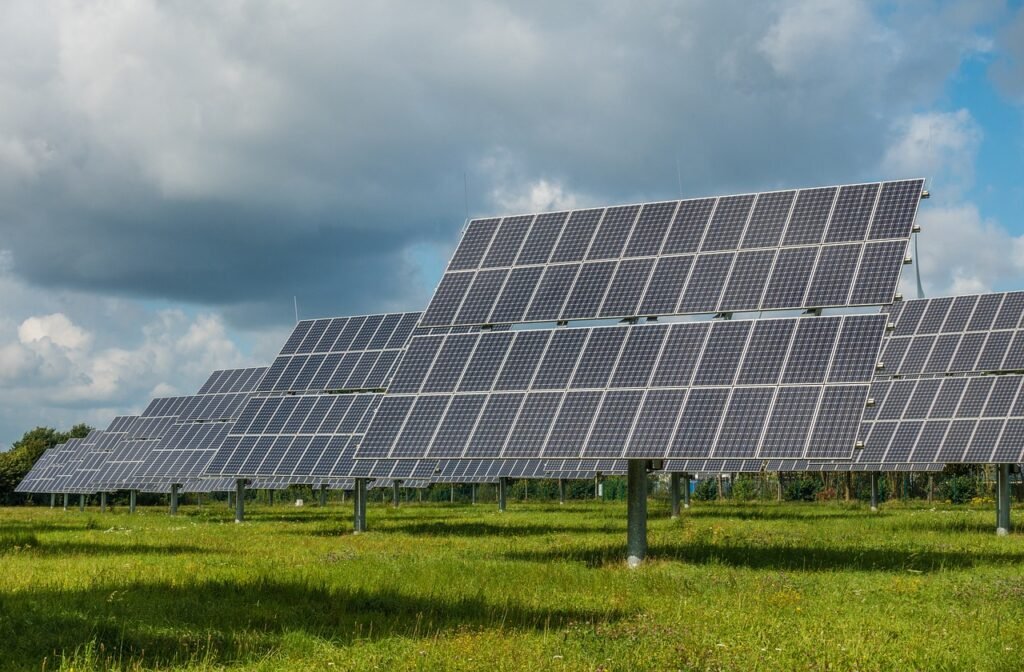
What are ground-mounted solar panels?
Ground-mounted solar panels are photovoltaic systems installed on the ground. These systems consist of solar panels mounted on structures or frames, positioned at an optimal angle to capture sunlight and convert it into electricity.
Unlike rooftop solar installations, which you have to install on the roofs of buildings, ground-mounted systems are placed on open land. This land can be part of residential properties, agricultural lands, commercial areas, or industrial sites. So, you can position the solar panels strategically to optimize exposure to sunlight, maximizing energy production.
Ground-mounted solar panels are popular for their flexibility in terms of installation and adjustments. So, you can tilt and orient them for optimal sunlight capture, which can enhance their efficiency compared to fixed rooftop installations. These systems are suitable for locations where there is ample available space and where the benefits of increased energy production outweigh any potential aesthetic or space utilization concerns.
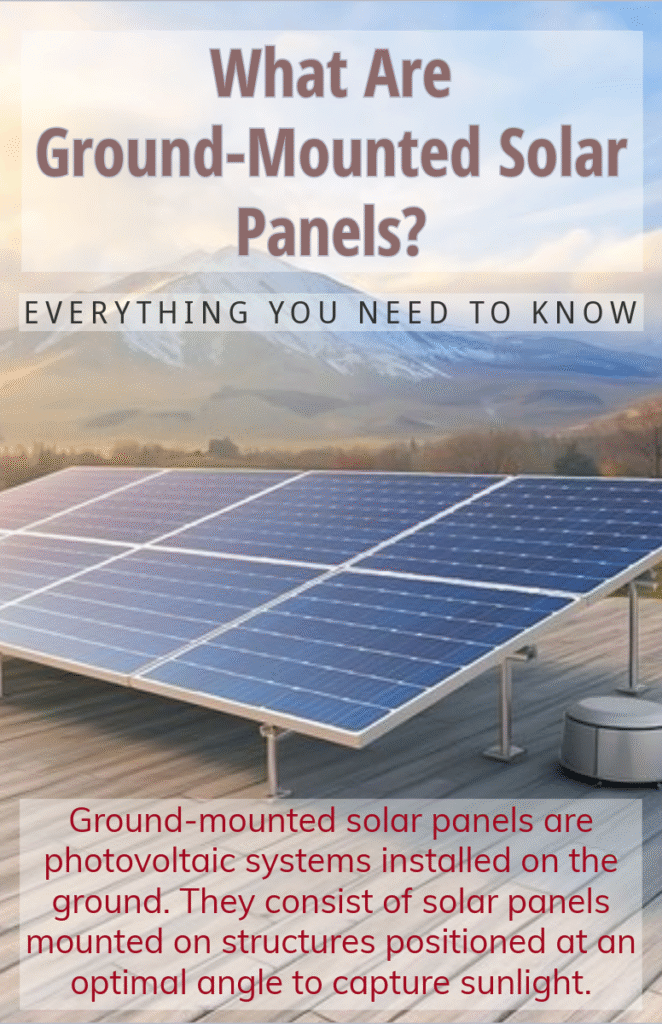
What are the pros and cons of ground-mounted solar panels?
Pros
Cons
Advantages explained
- Increased Efficiency: You can adjust ground-mounted panels for optimal tilt and orientation, maximizing sunlight exposure throughout the day and across seasons, leading to higher energy production.
- Space Utilization: Ideal for larger properties with ample open space, ground-mounted systems don’t depend on the roof size or shape. So, you could install more panels and potentially generate more electricity.
- Easy Maintenance: Accessibility is a significant advantage. Cleaning and maintaining ground-mounted panels are simpler than rooftop installations, which may require more effort and safety precautions.
- No Roof Modifications: Installing ground-mounted solar panels eliminates the need for modifications to the roof structure, ensuring that the integrity of the building remains unaffected.
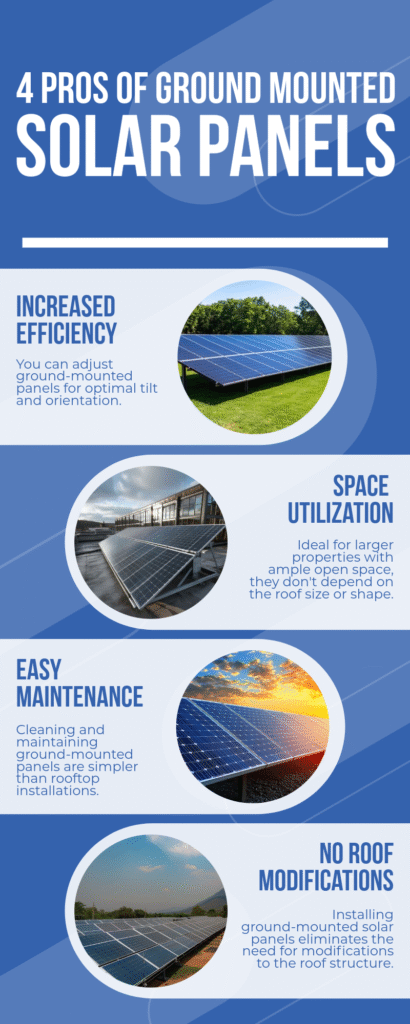
Disadvantages explained
- Land Requirement: Ground-mounted systems need a considerable amount of open land, which might be a limiting factor, especially in urban or smaller residential areas.
- Aesthetics: Some individuals find the appearance of ground-mounted solar panels less appealing compared to integrated rooftop installations, as they can alter the visual landscape.
- Cost: Initial installation costs are often higher because of the need for additional materials, such as support structures and foundations. However, the long-term efficiency gains may offset these costs.
- Environmental Impact: The construction and installation of ground-mounted systems can have a larger environmental footprint than rooftop installations, as they may involve more materials and ground disturbance.
In summary, while they offer enhanced efficiency and ease of maintenance, they come with challenges, such as land requirements, potential aesthetic concerns, and higher initial costs. The suitability of ground-mounted systems depends on factors like available space, property layout, and the specific goals of the solar energy project.
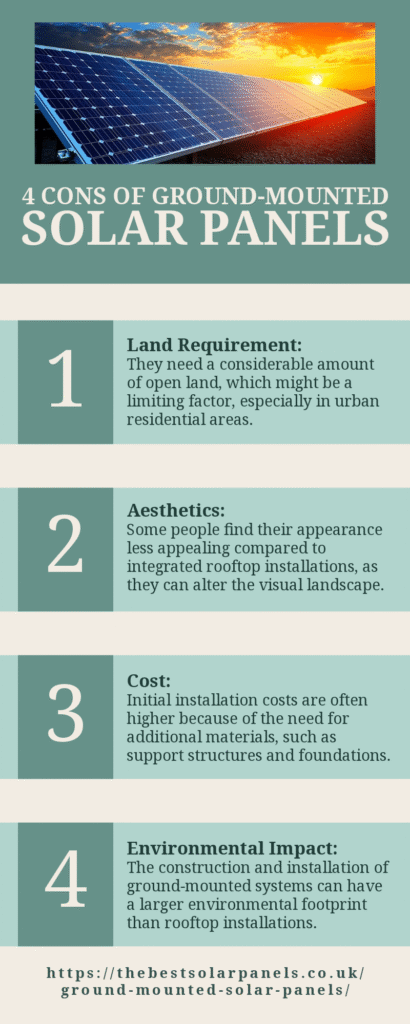
When do ground-mounted systems make the most sense?
Here are situations where opting for ground-mounted solar panels is particularly beneficial:
- Large Land Availability: Ground-mounted systems are ideal when there is ample open land available. They are perfect for large residential properties, agricultural lands, and expansive commercial or industrial sites.
- Optimal Sunlight Exposure: In locations where the ground offers better sunlight exposure than rooftops, such as areas with shading issues or where roofs don’t have the best orientation, you can position ground-mounted panels strategically for maximum sunlight capture.
- Flexibility in System Size: Ground-mounted installations offer more flexibility in terms of system size. They can accommodate a higher number of solar panels, making them suitable for projects aiming for higher energy production.
- Easy Maintenance Access: Accessibility is a significant advantage of ground-mounted systems. If regular maintenance and cleaning are a priority, the ease of access makes ground-mounted panels a practical choice.
- Remote or Off-Grid Applications: Ground-mounted solar panels are ideal for off-grid scenarios where larger energy production and battery storage may be necessary. This makes them a reliable option for remote areas without access to a centralized power grid.
- Avoidance of Roof Modifications: For buildings where rooftop modifications are impractical or cost-prohibitive, they offer an alternative, ensuring that the integrity of the roof structure is maintained.
- Increased Tilt and Orientation Options: You can adjust ground-mounted panels to the optimal tilt and orientation, providing better performance in areas with variable sun angles or where seasonal adjustments are beneficial.
To sum up, the decision to choose ground-mounted solar panels depends on the specific features of the property, energy requirements, and the goals of the solar installation.
Ground-mounted panels vs. rooftop panels: Which is right for you?
Choosing between ground-mounted and rooftop solar panels depends on factors like available space, property layout, and aesthetic preferences. While ground-mounted systems offer higher efficiency, rooftop installations can be more suitable for smaller spaces and urban environments.
Choose Ground-Mounted Panels If:
- You have ample open land.
- Maximum energy production is a priority.
- Maintenance accessibility is a significant concern.
- Your property has shading issues or suboptimal roof orientations.
Choose Rooftop Panels If:
- You don’t have enough space, and the ground space is insufficient.
- Aesthetic integration is important.
- You’re working on a smaller-scale solar project.
- You want to avoid potential roof modifications.
In the end, the right choice depends on your specific circumstances and priorities.
Which are the ground-mounted solar panels’ foundation options?
These types of solar panels require sturdy foundations to support the structure and ensure stability over time. Here is a list of the most common options:
| Option | Description | Suitability | Advantages |
| Concrete Piers | Concrete piers are robust support structures that are embedded into the ground. They provide a stable foundation for the solar panel mounting system. | Ideal for various soil types, especially those with good load-bearing capacity. | Durable, reliable, and resistant to environmental factors. |
| Screw Piles | Screw piles are metal rods with helical blades that are twisted into the ground to provide support. They are a cost-effective and eco-friendly foundation option. | Suitable for soft or sandy soils where traditional foundations may be challenging. | Quick installation, minimal ground disturbance, and easy removal if needed. |
| Ballasted Systems | Ballasted systems use weighted structures to hold the solar panels in place. These weights can be concrete blocks or other heavy materials. | Ideal for locations where ground penetration is restricted or undesirable. | No need for extensive excavation, making them suitable for sites with specific construction limitations. |
| Concrete Slabs | Concrete slabs involve pouring a large, flat concrete surface on the ground to serve as the foundation for the solar panel mounting system. | Well-suited for stable soil conditions and larger installations. | Provides a level and durable surface for the entire solar array. |
| Helical Piles | Helical piles are similar to screw piles but with larger helices. They are twisted into the ground to create a solid foundation. | Effective in various soil types, especially those with a mix of soil conditions. | Offers stability and load-bearing capacity, suitable for larger solar installations. |
| Pier and Beam Systems | Pier and beam systems use a combination of elevated piers and horizontal beams to support the solar panel structure. | Suitable for areas with uneven terrain or where elevation is desirable. | Allows flexibility in dealing with varied ground conditions. |
When choosing a foundation option, think about factors such as soil characteristics, local climate conditions, and the overall size of the solar installation.
Are ground-mounted solar panels cheaper?
The cost of ground-mounted solar panels can vary based on several factors. And while they may have higher initial installation costs than rooftop installations, the overall cost-effectiveness depends on various considerations. Here are some factors to weigh when evaluating the cost of ground-mounted solar panels:
| Ground Mounted Panels | Rooftop Panels | |
| Installation Costs | They often have better access to sunlight, allowing for optimal tilt and orientation adjustments. This can result in higher energy production over the lifespan of the system. | Rooftop installations may have lower upfront costs since they utilize existing structures, reducing the need for additional support and structural modifications. |
| Efficiency and Energy Production | Ground-mounted systems often have better access to sunlight, allowing for optimal tilt and orientation adjustments. This can result in higher energy production over the lifespan of the system. | Rooftop panels may be constrained by the size and orientation of the roof, potentially leading to lower energy production. |
| Space Utilization | These systems can be deployed on larger properties, taking advantage of open land. This allows for the installation of a greater number of solar panels. | Limited rooftop space may restrict the number of panels that can be installed, especially in urban or smaller residential areas. |
| Maintenance Costs | Accessibility is generally better for ground-mounted systems, making maintenance and cleaning more straightforward. | Maintenance of rooftop panels may be more challenging and could require specialized equipment or safety measures. |
| Long-Term Returns | Despite higher upfront costs, ground-mounted systems may offer better long-term returns due to increased efficiency and energy production. | While initial costs may be lower, the limited space and potential shading issues may impact long-term returns. |
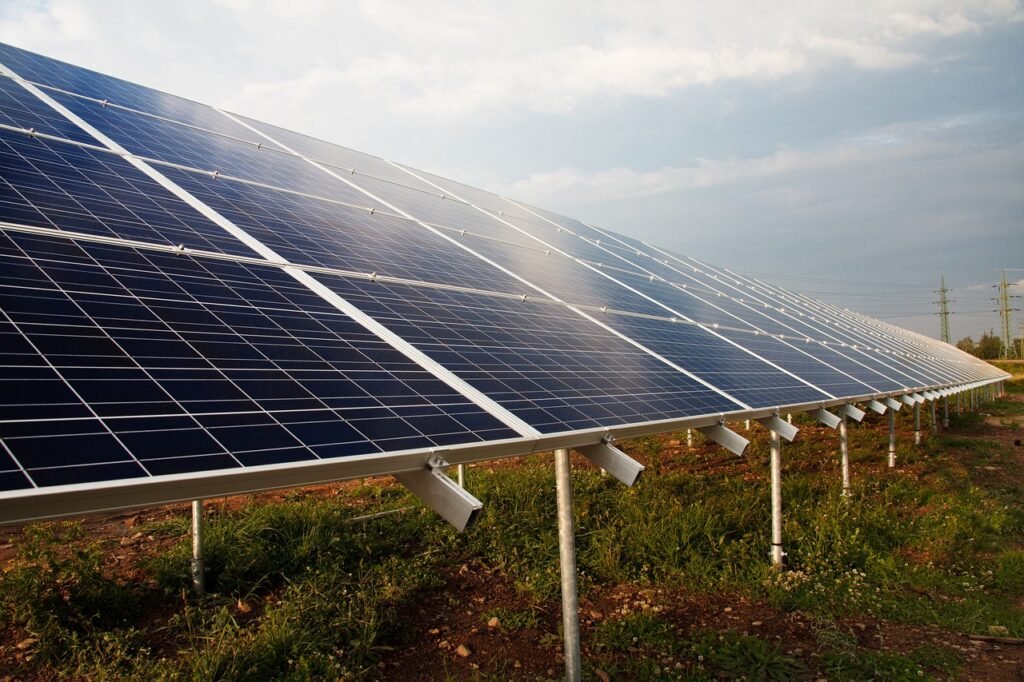
How much do ground-mounted solar panels cost?
This is a general overview of the cost you should think about when installing ground-mounted solar panels.
1. System Size:
The size of the solar installation, measured in kilowatts (kW) or megawatts (MW), significantly influences the overall cost. Larger systems generally have higher upfront costs.
2. Equipment Costs:
The cost of solar panels, inverters, mounting structures, and other components contribute to the overall expense. High-efficiency solar panels and advanced inverters may have a higher upfront cost but can potentially yield greater energy production.
3. Installation Costs:
The labour and installation costs cover expenses related to site preparation, foundation construction, wiring, and the actual installation of the solar panels. Ground-mounted systems may involve additional labour compared to rooftop installations.
4. Foundation Type:
The type of foundation chosen for the ground-mounted solar panels (such as concrete piers, screw piles, or ballasted systems) can impact costs. Some foundation options may be more cost-effective depending on the soil conditions and site characteristics.
5. Location and Permitting:
Local permitting requirements, zoning regulations, and site-specific conditions can affect costs. Costs may vary based on geographic location and the associated permitting fees.
6. Government Incentives:
Available government incentives, rebates, and tax credits can significantly reduce the overall cost. Incentives vary by region and may include federal, state, and local programs.
7. Financing Options:
The method of financing the solar installation (cash purchase, loan, lease) can influence the overall cost structure.
As a rough estimate, the cost of ground-mounted solar panels can range from a few thousand dollars for smaller residential systems to several tens of thousands or even more for larger commercial or utility-scale installations.
Can you use ground-mounted solar panels off-grid?
Yes, you can use ground-mounted solar panels in off-grid systems to generate electricity independently of the traditional power grid. Off-grid solar systems (also known as standalone or autonomous systems), provide power in locations where access to the electrical grid is either unavailable or cost-prohibitive. Ground-mounted solar panels are a practical choice for such applications because of their flexibility and efficiency.
Are ground-mounted solar panels safe?
Yes, ground-mounted solar panels are safe when installed and maintained properly. The safety of ground-mounted solar panel systems is a priority, and various industry standards and regulations are in place to ensure the reliability and security of these installations.
Conclusion
Ground-mounted solar panels offer a compelling solution for those with ample space and a commitment to sustainable energy. Assessing the pros and cons, understanding the foundation options, and considering the cost implications will help you make an informed decision on whether ground-mounted panels are the right fit for your energy needs.



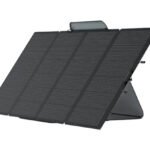
Leave a Reply